Keeping the queen off the chess board
Men and women competed separately in Eilat [in October], raising questions about the need for a gender divide.
The European Chess Club Cup, which Eilat hosted earlier this month, boasted not only 34 men's teams but also eight women's teams.
Although Judit Polgar, the highest ranked women's chess player in the world, did not show up, the tournament did draw world champion Yifan Hou, 18, who won the title when she was just 16. Other prominent names included Humpy Koneru of India (No. 2 in the world ), former world champion Alexandra Kosteniuk, Slovenian Anna Muzychuk (No. 4 in the world) and European champion Valentina Gunina of Russia.
Kosteniuk, by the way, defeated Hou, No. 3 in the world, in the first round.
Although these women are all extremely talented, still they competed against each other and not the men. The World Chess Federation awards separate men's and women's titles.
Why the gender divide? Do the women play less well than the men, and if so, why? Does it have to do with comprehension of the game, with being more emotional, impatient, naive? Or is it due to inherent discrimination in the system?
If change is going to come, Hou - the youngest world champion ever - is in a good position to jump into the fray. She helped China win the team world championship by three points over runner-up Russia and added to her horde of medals an Olympic silver with her national team, as well as a second straight European Club Cup championship with the Monte Carlo.
Hou participates in many men's tournaments. She shared first place at one tournament in Gibraltar among a field of 55 male chess grandmasters - 11 of them with a rating of over 2,700 points. She told Haaretz that playing male grandmasters is an important opportunity to amass experience at the highest levels.
There are clear differences between women's chess and men's chess, according to Hou. She says men's strategic thinking is different from that of women, and that the men have more ideas. Women's chess is more emotional, even suffering from excessive emotion, Hou says. [Bullshit! She's obviously being coached my chauvinist males who have brow-beat this crap into her head. That's why she'll settle for a women's world chess champion title and never seriously make a run toward the real thing -- the title that heretofore has always been held by a male.] She says that's the reason it is good to mix in games against men with games against women.
Still, the overall difference between men and women in Eilat was clear. The women players barely barely left the tables. Even Hou rarely allowed herself to get up, spending most of the time focused on the board. In contrast, the men took strolls and did not sit at the board when they weren't mulling over the next move.
Vitali Golod, coach of Israel's national women's chess team for the past seven years, says psychological preparation is essential for female players. He says half the battle is convincing them that everything is fine.
Beyond that, it's better to focus on a thoroughly rehearsed plan without piling on variations, Golod says, adding that it is very important for female players to have a plan that lets them obtain a good position on the board and attempt to guess which opening will be created in the game. Otherwise, there's a risk of over-anxiety, he says.
Golod believes when a woman loses it's better not to go to her immediately but rather to wait a little to allow her to calm down. He says women usually don't stay to analyze a game after it's over, in contrast to male chess players. He says he's asked women about this and they have told him they were sick of seeing their opponent's face. He adds that women also tend to tire more quickly than men. [Certainly physical differences come into play in terms of endurance and exhaustion, but the rest of Golod's comment -- it's just so typical and something women, who internationally compose only 7% of all chessplayers in the world, hear every single day. After awhile, they begin to believe the lie!]
Man-beaters
Judit Polgar, 36, and her two sisters demonstrate time and again that even if there is truth to what Hou and Golod say, women can defeat men on the board. Sofia Polgar, the middle sister, recently played 17 men simultaneously and beat them all.
The Polgars, a Jewish family from Hungary, have been associated with dominance and unrivaled quality in women's chess for three decades. The trio's father, Laszlo Polgar, is a psychologist who believes that geniuses are made, not born.
Initially he forbade his daughters from playing against other women, which led the Hungarian Chess Federation to ban the family. After the ban was lifted the Polgar girls won the 1988 and 1990 Chess Olympics in Thessaloniki and Novi Sad, and took silver at the 1994 competition in Moscow.
Judit, the youngest, is the only woman among the world's top 10 chess players. She beat former world champions Gary Kasparov and Anatoly Karpov and continues to represent Hungary, on the men's team.
Susan (Zsuzsa ), at 43 the oldest of the sisters, is a former women's world champion.
Sofia, who is married to Yona Kosashvili, a Georgian-born Israeli who is a chess grandmaster in his own right, teaches chess and is working to increase the game's popularity. She says there are several female chess players who can put up a fight against male players at the highest levels and that there is no reason for women to be inferior to men in chess. According to Sofia, the main differences are cultural and have to do with women's commitments to their families, which have shortened or ended the careers of many female players.
Sofia recalls that when Judit was eight or nine their family recognized that she had the makings of a champion. Judit's way of thinking was different from most female chess players, Sofia says, adding that she displayed a sharp mind, a desire to take tactical positions and an approach devoid of excessive emotion. Judit is professional in every respect, says Sofia. The difference between her youngest sister and male chess players is that the burdens of raising children and other family duties fall mainly on her, as wonderful as her husband is.
Although Sofia is married to a chess grandmaster she is barely active in the game, perhaps aware of the demands on a woman seeking to be among the top players in the world. She says that when they were young she and her sisters had to put in seven to eight hours a day on chess, working with and without professional coaches.
The girls began beating their father at chess by the time they were eight, she adds.


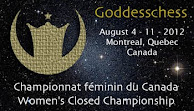


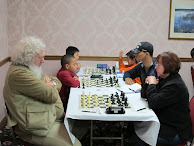

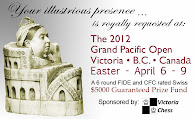

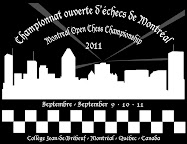










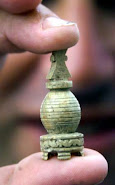











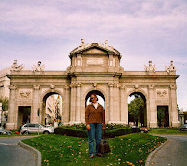


No comments:
Post a Comment